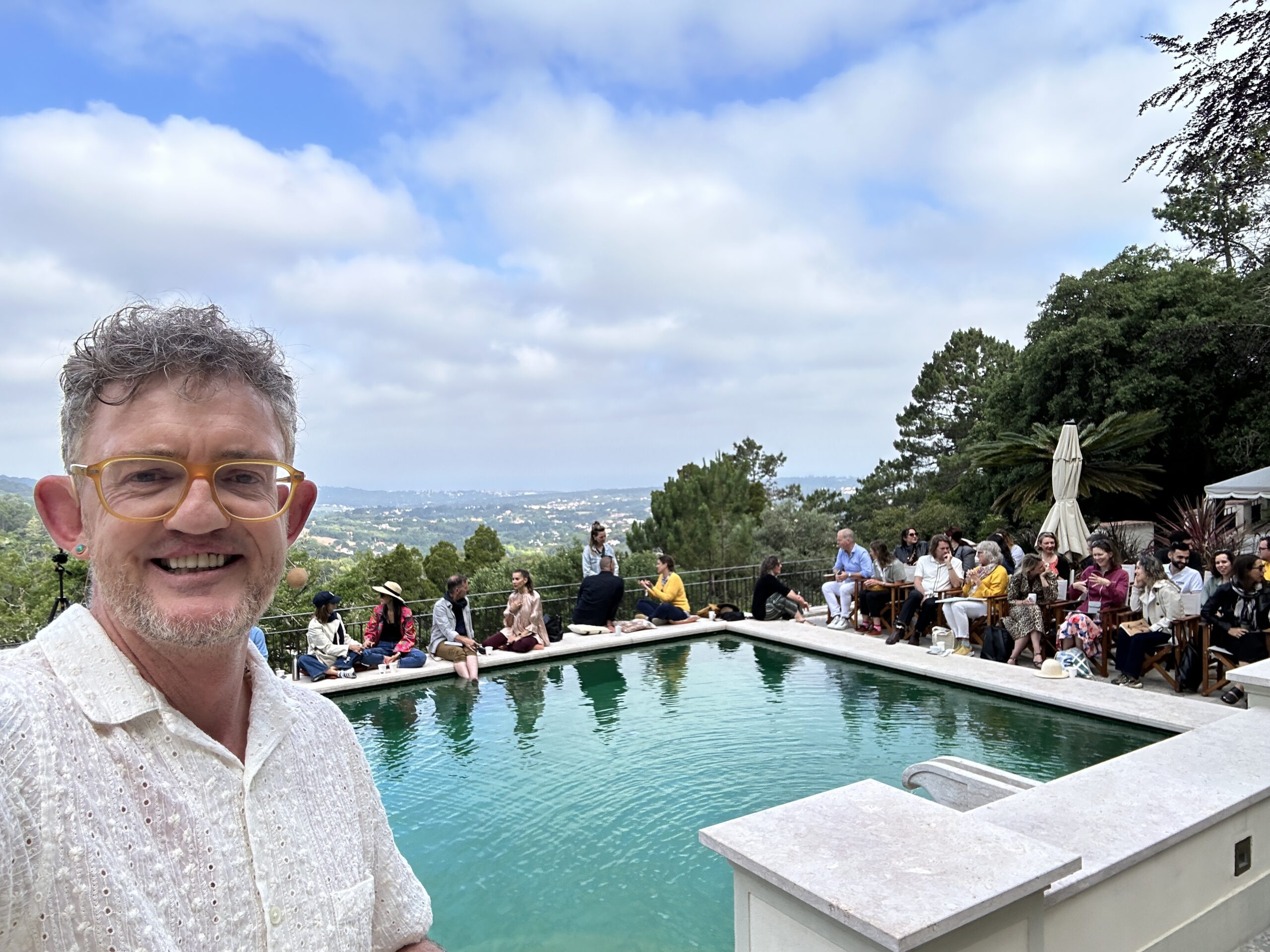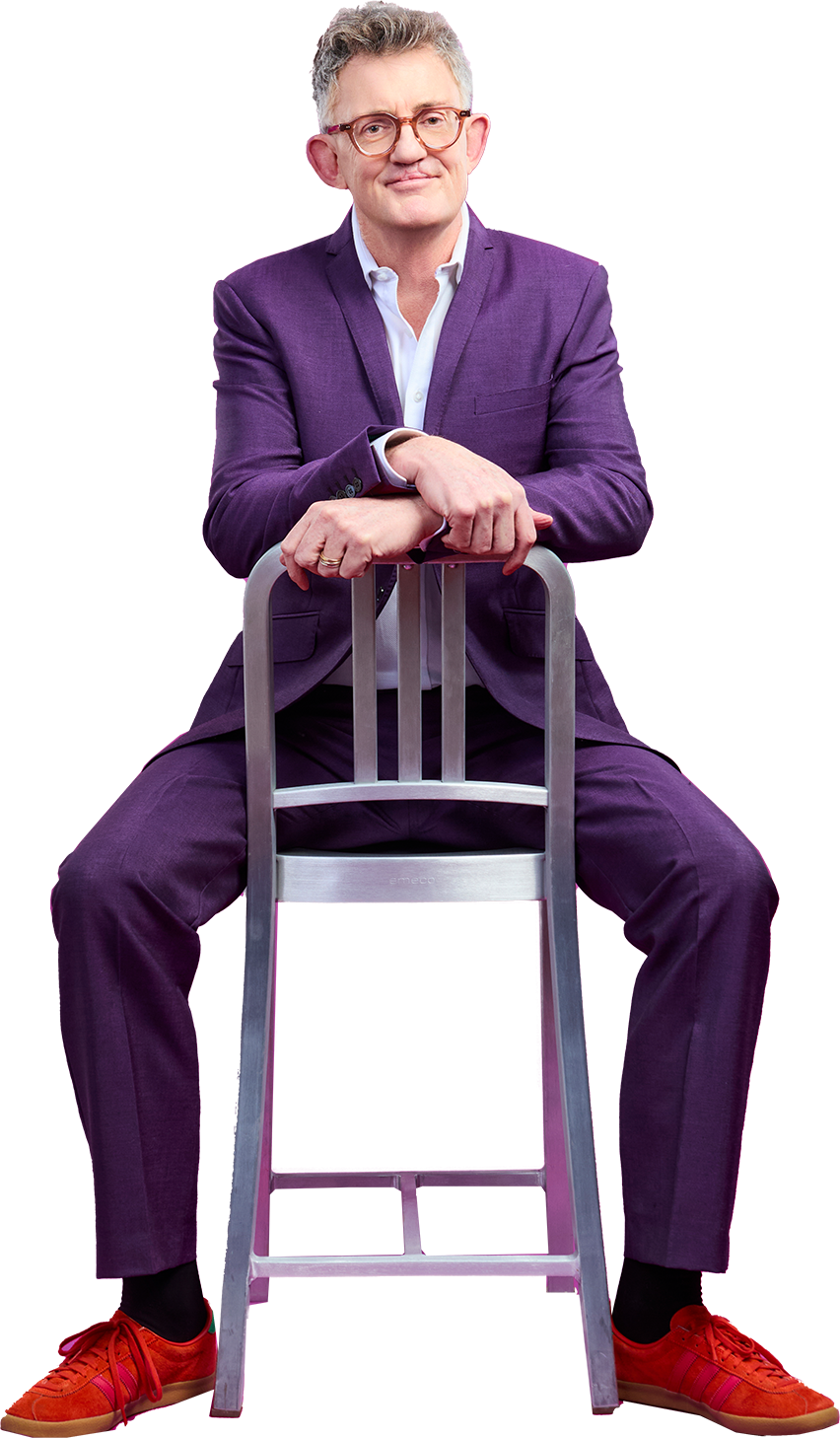Possibly the best “classroom” in which I’ve taught
How to make something feel really helpful
I’m just back from a visit to Portugal and my favorite conference, the House of Beautiful Business. This year it was in Sintra, a hillside town about 45 minutes outside Lisbon, and it was hosted on the estate once owned by Sir Arthur Conan Doyle.
So “conference” is a bit misleading. There were no beige hotel rooms – everything took place under the sun and under the stars – and there were no slide decks or the usual paraphernalia.
I had the pleasure of running a workshop on How to Work with (Almost) Anyone (which, in case you’ve missed it ????, is my upcoming book.)
Let’s face it, when you deliver anything by a pool with an extraordinary view cascading all the way down to the coast, all while warm and gentle breezes blow … it’s probably going to be pretty well received. Even if the teaching is a disaster, everyone will think, “that wasn’t so bad”.
But I’m going to claim, and I’m sure it’s only slightly self-serving, that the enthusiastic feedback I got was for reasons above and beyond the setting.
People were excited about the practicality of the workshop for starting a new job, onboarding a new person, setting up a collaborative partnership, and even improving the vendor contracting process.
But before we got to that level of appreciation, something else had to happen.
Why this worked so well
The way I’ve designed the workshop is that very early on–in the first ten minutes or so–I ask everyone in the audience to take a trip down memory lane. (Let me invite you to do the same with me now.)
I ask them (and I’m asking you) to remember a really difficult working relationship they’ve had in their past or that’s happening right now. A working relationship that is frustrating, irritating, feels broken, feels imprisoning. You know, all the feels: ????????????????????????????
???? Bring to mind the interactions between the two of you. What was said and done, and what was not said and not done, both by you and by them. Really take yourself back there.
If you’re like me, you’re probably having a bit of a physical reaction to that right now, shoulders up, things tensed, jaw clenched…
???? Now, go deeper. Name the impact it had on you and your work.
How did it make you feel? What did it do to your sense of self? How did it affect your confidence and courage, and willingness? What changed in the quality and the focus of the work you did? What else changed in you as a result of being in that frustrating relationship?
When I ask this, I tend to hear a lot of answers. But if I could use just one word to sum them all up, it would be “diminished”.
People feel less than, smaller than, shrunken, afraid, more brittle, and more uncertain…
I then flip the exercise, and the second time do it about a working relationship that’s been really strong, really successful. The same questions, and this time the words I hear could be summarized as “made greater”. Brave, bolder, more autonomous, more willing.
In short, I help people feel, at a very personal level, the truth of this statement: Your happiness and your success depend on your working relationships.
What problem are we solving for?
Someone once taught me that, when you want to encourage people to buy something, you need to market medicine, not vitamins. It’s a neat way of saying that you have to help people “feel the pain” to make them ready and open to a new solution. If there’s no problem to solve, there’s no need to find an answer.
I’m hoping you’re feeling the gap, that you’re hungry now in practice (not just theory) to build working relationships that are safe, vital, and repairable. (And if that’s the case, there are still some fabulous pre-publication bonuses you can pick up right now. The “two-book” bonus is the most popular, but the “five-book” bundle is pretty close behind.)
But the big lesson I hope you’ll take from this is the need to help people feel the pain and more deeply appreciate their stuckness, so they’ll be open to seeing if what you have to offer might be a helpful solution for them.
Want The Works in your inbox? Sign up (free) here

